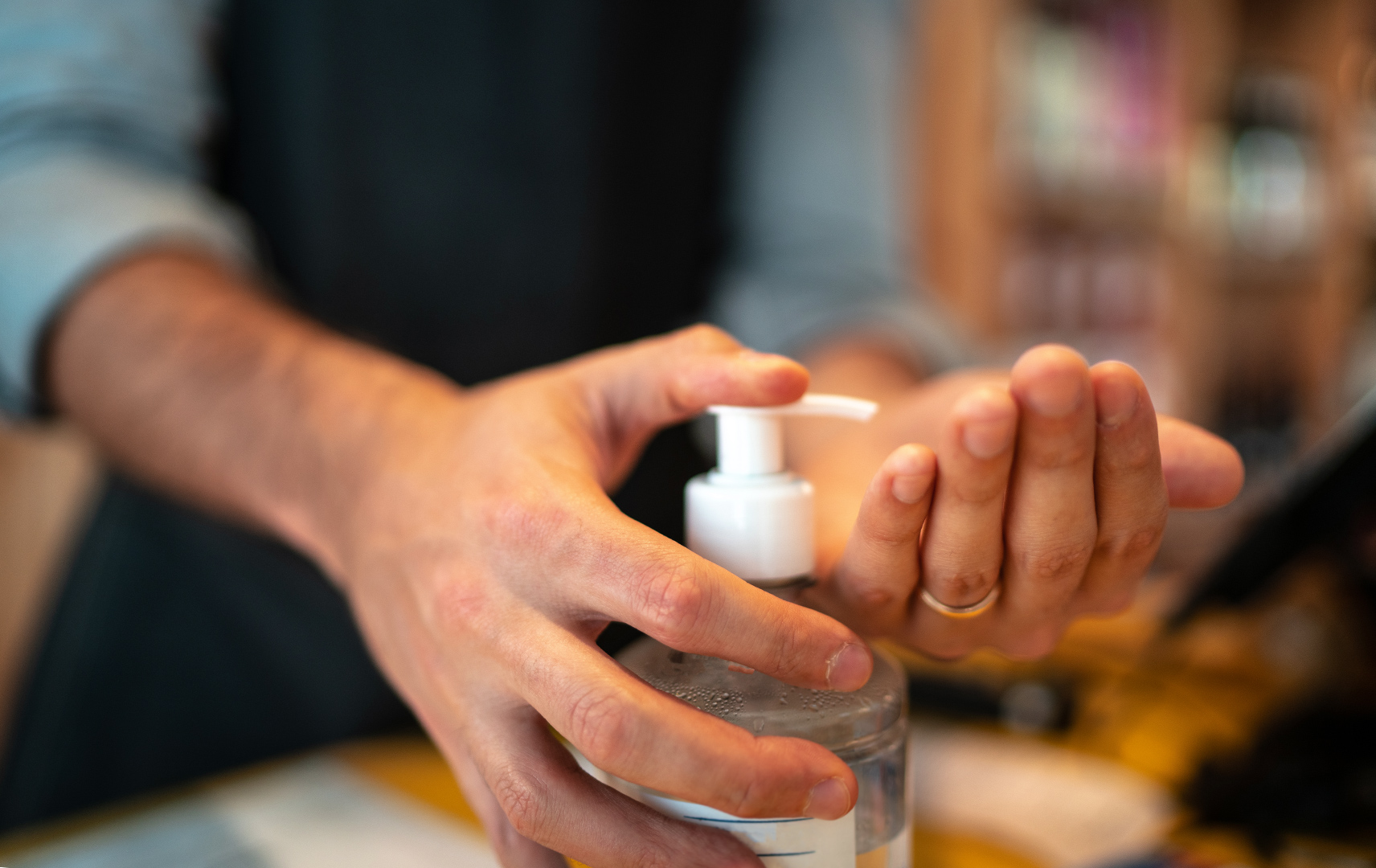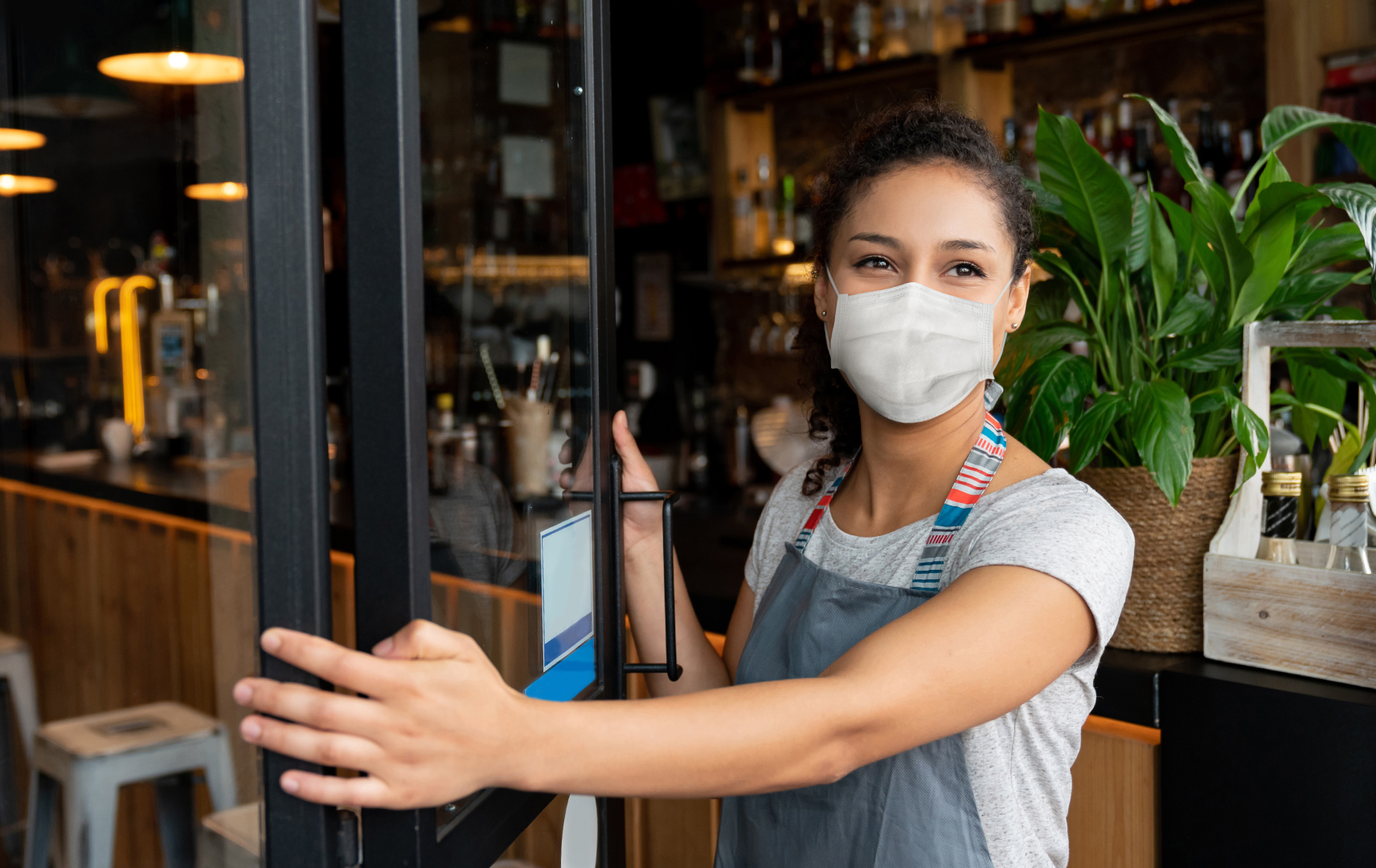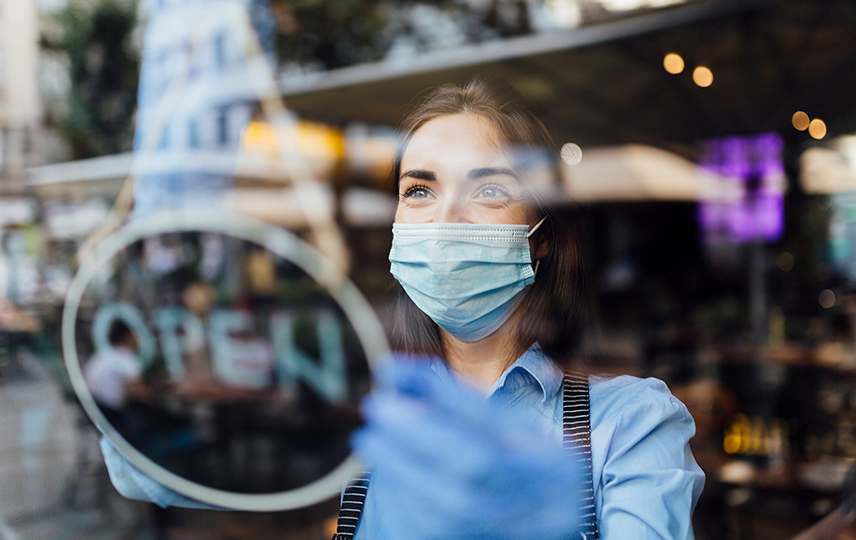As the number of positive COVID-19 tests, hospitalisations, and deaths continue to reduce in the UK, we’re finally reaching the long-awaited loosening of national restrictions. For many businesses – particularly those in the retail and hospitality sectors – this is a much-anticipated time, as they look to welcome back the world and repair some of the economic damage left by months of closed doors.
Back in 2020, the second wave of infections in the UK taught us that reopening must be done right. And this means ensuring your business has done everything in its power to meet the latest government regulations, and prioritise the safety of both staff and customers.
A huge part of this is providing PPE equipment that limits the spread of bacteria and viruses within your environments. As a result, products such as protective screens, face masks and hand sanitisers are now essential parts of our daily operations.
In fact, the global PPE market size is projected to reach $92.86bn by 2027, exhibiting a CAGR of 7.4% during the forecast period.
There is however, a growing concern that businesses are prioritising price over quality when it comes to these products, placing considerable risk on the people who are using and trusting them. This is particularly true in the hand sanitiser market, where numerous pop-up manufacturers are undercutting competitors with products that are untested, unproven, and in many cases, actually harmful.
Exploiting sanitiser demand
Over the past year, there have been both international and national reports of opportunist manufacturers who are attempting to profit from the pandemic by offering hand sanitisers and gels that are not only ineffective at killing bacteria and viruses, but also that may cause significant adverse health effects.
Back in January, Trading Standards issued an urgent recall for two hand sanitiser gels that were being sold on Amazon and eBay. These products were found to pose serious health risks to the public. One was found to contain 37% methanol – a toxic alcohol that is used industrially as a solvent, pesticide, and alternative fuel source. Methanol is currently a banned ingredient in the UK, due to by-products that cause an accumulation of acid in the blood (metabolic acidosis), blindness, and death.
Since the global pandemic, The National Poison Data System also started getting more reports of unintentional exposures in children. In the first half of 2020, there were 46% more reported cases related to hand sanitiser than during the same time in 2019. Many reports were about children ages 5 years and younger.
This influx of cheap, ineffective, and dangerous hand sanitiser products not only pose risks to users, but also to businesses who procure them for use on a larger scale. Without proper scrutiny and consideration of the products they use and provide, many businesses are exposing themselves to wider impacts.
Consequences of buying cheap
When it comes to hand sanitiser and gel products, prioritising price over efficacy could significantly jeapordise the success of your reopening strategy. Here are 4 main areas of business risk, that are exacerbated by misleading products:
Safety
The most obvious risk is to the health and safety of your staff and customers. Ineffective products could be the difference between a single infection in your environment and a full outbreak. This is because of the importance of killing bacteria and viruses on hands. Frequent hand washing and using sanitiser products with proven efficacy reduce the spread of infection between people, and on surfaces.
Reputation
Should your business come under scrutiny for any reason, the ability to prove you have taken all possible measures to reduce the spread of infection will go a long way in protecting your reputation within your industry and among customers. The resulting effects of a tarnished reputation in such challenging times poses significant financial implications.
Compliance
Many highly-regulated industries will be closely assessed to ensure businesses are taking the appropriate health and safety measures as set out by governing bodies. Using ineffective or unproven PPE products could push your organisation out of compliance. Even for those in less regulated industries, the pandemic has resulted in new national rules and guidelines that businesses are being urged to follow.
Social responsibility
Combating the spread of the virus and mitigating the economic impacts of national restrictions requires a collective effort from businesses, workspaces, and public sector organisations to do everything possible to keep people safe. There is therefore a level of social responsibility for us all to do our part in limiting the spread of infection, using products that are scientifically proven to be effective.

Finding effective hand sanitisers and gels
Many of the ineffective hand sanitiser products found in today’s market purposely aim to mislead buyers, even going as far as to imitate the design and packaging of trusted brands. Fortunately, products in the UK must meet strict labelling standards, which can be useful when trying to identify products that are proven effective, safe for use, and that meet regulatory standards.
Here are a few elements to consider when choosing a hand sanitiser for your business:
Alcohol content
Alcohol destroys viruses and bacteria by dissolving the outer layer, which inactivates them. Ethanol is commonly found in drinking alcohol, while isopropanol is what’s more commonly known as ‘rubbing alcohol’. Most hand sanitisers use either of these types of alcohol, or a mixture of both. The World Health Organization (WHO) states that an alcohol-based hand sanitiser must contain at least 60% alcohol to effectively kill COVID-19 virus particles.
Biocide regulation
In the UK, hand gels cannot make any unsubstantiated efficacy claims. Products must be tested to and achieve a pass at internationally recognised standards (listed below) before they can make any antibacterial or antiviral claims.
Specific claims against COVID-19
Currently, no hand sanitisers on the market have been tested specifically with the COVID-19 virus, only a surrogate SARS-CoV-2 virus. This means that no hand sanitisers on the market can claim to kill COVID-19, but they can claim to pass EN14476 regulations, which means it is effective against all enveloped viruses as defined in EN 14476:2013+A2:2019 Annex A including Coronaviruses.
When considering hand sanitiser products, be sure to check that they have met compliance validations for both virucidal and biocidal activity. These validations include:
– EN 1276
– EN 1500
– EN 14476:2013+A2:2019
Keep up to date with regulations as they evolve by signing up to the AGMA newsletter.
Reopen with confidence
By prioritising safety over price and properly scrutinising the hand sanitiser products you procure, your business will minimise both the health and business risks associated with pop-up untested products.
Whether stocking your cleanroom, offices, classrooms, or shop floor, choosing a trusted product from a reputable manufacturer that has met all the necessary standards enables you to safely reopen your business and welcome back the world with confidence.
Explore AGMA’s range of proven effective hand gel products in our latest product brochure.



